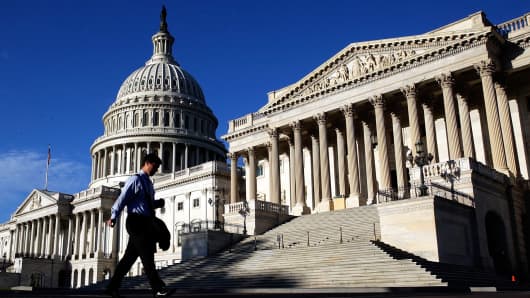Today, the U.S. grants less than one in ten green cards for economic reasons, yet some international competitors welcome up to half their immigrants for that purpose, according to research by Partnership for a New American Economy. Celebrated as the land of innovation, the rate of start-up creation in America actually has been declining for the last few decades.
Despite restrictive policies, foreigners who have been allowed into the U.S. have made immense economic contributions. A 2011 report by the National Foundation for American Policy suggests that nearly half of the top 50 venture-backed start-ups were founded or co-founded by immigrants. Another study from Niskanen Center, a libertarian think tank, indicates that nearly two jobs overall are created in industries associated with computers and engineering with the entrance of every one immigrant with a high-skilled work visa in those industries.
Read MoreAre red or blue states better job creators?
While comprehensive immigration reform is at a standstill, Congress and the president can increase job creation through legislation increasing visas and green cards to foreign innovators and entrepreneurs.
Implementing these three proposals by no means will cure all of our economic ills. But harnessing our abundant energy, making fixes to create a pro-growth tax code, and welcoming the best and brightest foreigners to apply their talent here will take a significant step toward restoring the dynamism that the U.S. economy can — and should — achieve.
Commentary by Steve Odland, CEO of the Committee for Economic Development and former CEO of Office Depot and AutoZone. Follow him on Twitter @SteveOdland.



